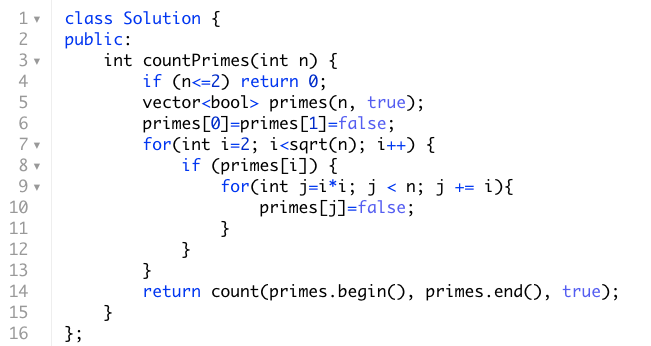Math
June 3, 2021
Introduction
There are a lot of interesting basic math questions that make for good algorithm questions. Most of these questions don't require any specialized knowledge except for elementary school level math, but they will require careful thinking to answer correctly.
An Example
Count the number of primes less than a non-negative number n. The naive way to solve this problem would be to check each number and test whether it is divisible by any other number other than 1. But there is a better algorithm called the sieve of Eratosthenes named after Eratosthenes of Alexandria. The idea is to initially declare an array of booleans called primes and set every value between 0 - n to true as 'probably prime'. Then we set 1 and 0 to false. Then we consider all factors of the number less than its square root. Then beginning with 2 (which is set to true as a prime) we cross out all multiples of two as non-prime. We do this with 3 and all numbers until we hit out end condition,

Sieve of Eratosthenes
Practice Problems
EASY
MEDIUM
○ Fraction to Recurring Decimal
HARD